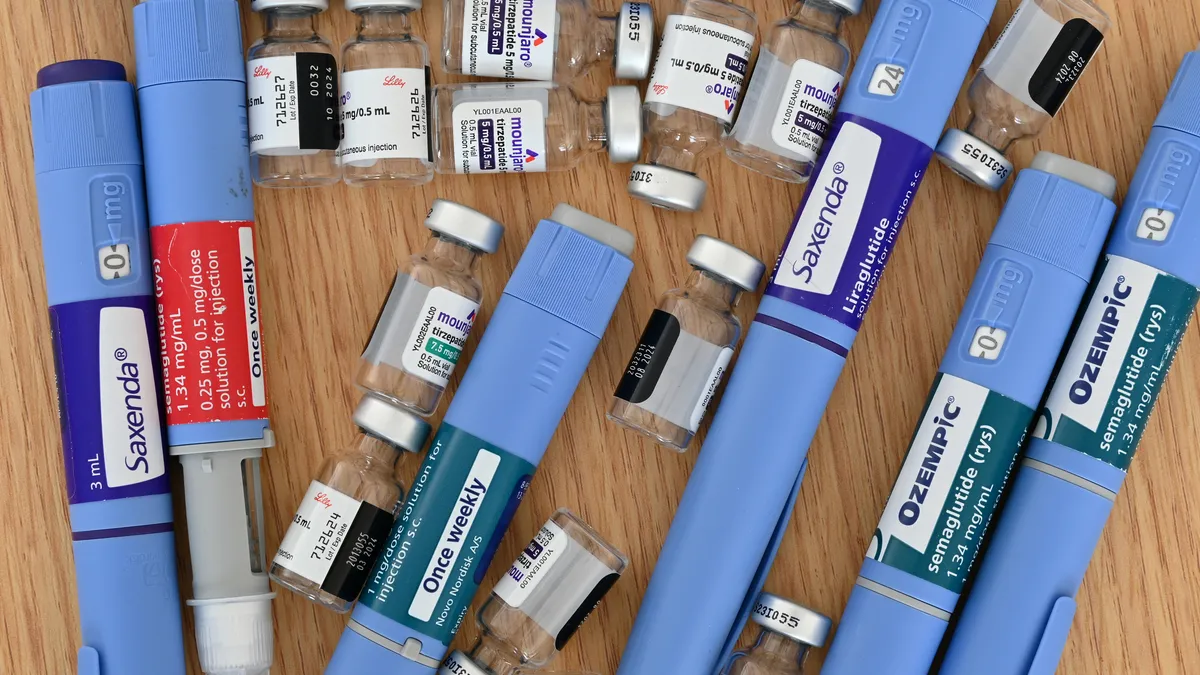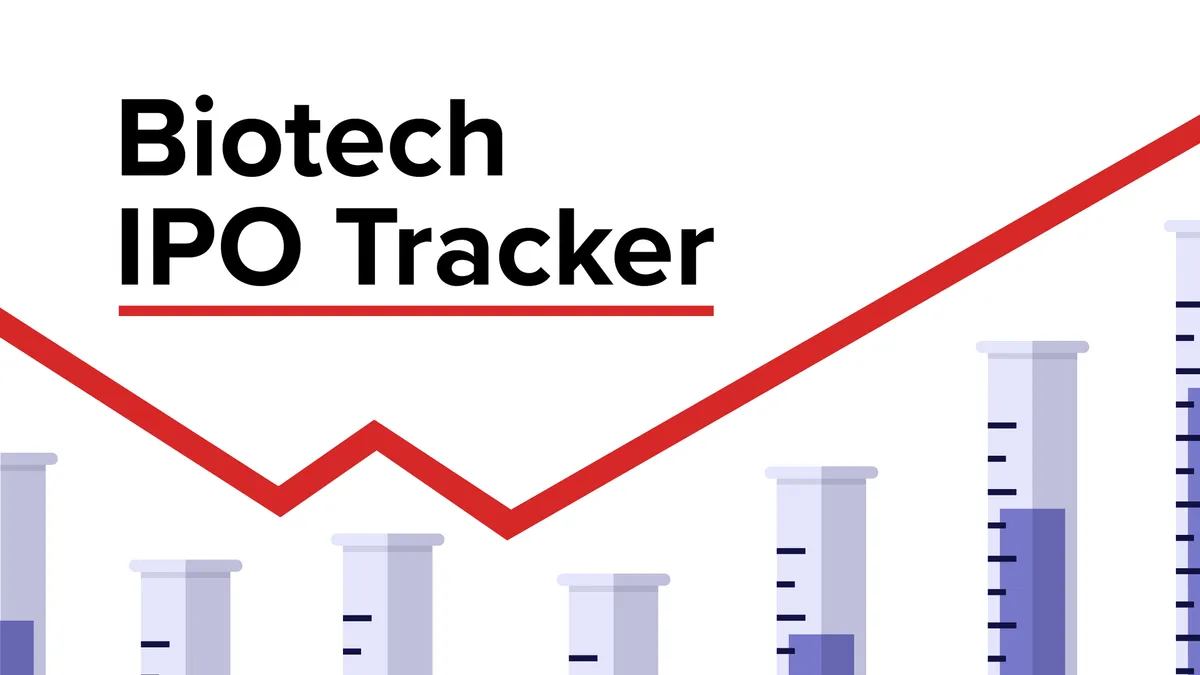Dive Brief:
- Privately-held biotechnology startup Metsera said Tuesday a long-acting GLP-1 shot it’s developing helped people who are overweight or have obesity lose more weight than placebo recipients in a Phase 2 trial.
- Study participants who received the shot, dubbed MET-097i, lost on average 11% more of their body weight than those who got a placebo over the course of 12 weeks. Placebo-adjusted weight loss also reached around 20% in those who received the highest dose, comparable to what was observed in tests of Eli Lilly’s Zepbound and Novo Nordisk’s Wegovy over a similar period.
- Metsera also said data from the trial support plans to test MET-097i as a monthly injection, less frequent than the weekly shots Zepbound and Wegovy require. The announcement is the latest step forward for a company that has raised more than half a billion dollars since launching last April to support a bid to challenge Lilly and Novo’s medicines.
Dive Insight:
So-called incretins have quickly become some of the most sought-after medicines in drug research. The drugs can help people not only shed a significant amount of body weight, but avert heart problems and, potentially, treat other associated conditions. Some Wall Street analysts believe the medicines could top $100 billion in yearly sales next decade.
Yet the currently available drugs are flawed. People have to get weekly shots of Zepbound or Wegovy over the long term to cut weight, and keep receiving treatment to maintain those benefits. But the prospect of frequent injections, as well as gastrointestinal side effects, can make multiple years of therapy a tough proposition. Recent analyses of medical records suggest that half of those taking the drugs for obesity alone have stopped treatment after a year, and even more — as many as 85% — after two years.
As a result, several drugmakers are working on ways to improve upon Wegovy and Zepbound, either by developing oral formulations, longer-lasting medicines or targeting different biological pathways.
Metsera is doing all of the above with a portfolio of prospects it acquired through deals. Its most advanced is MET-097i, an attempt to reduce the number of injections people would have to receive. The company says the drug has a half-life — a potential marker of durability — of 15 to 16 days, compared with about one week for Wegovy and five days for Zepbound.
The Phase 2 trial reported Tuesday enrolled 120 people who are overweight or have obesity and divided them into five groups of 24, with four people in each cohort receiving a placebo. In four of the study groups, trial volunteers randomized to receive MET-097i got fixed doses of between 0.6 and 1.2 milligrams for 12 weeks. The fifth group received a dose that increased from 0.4 to 1.2 milligrams over the course of 12 weeks.
In the 13th week, all participants receiving MET-097i received a double or quadruple dose to assess the side effects of a potential monthly shot.
Metsera said drug exposure quadrupled over the four weeks in the people who received the fixed doses. In those whose dose level gradually increased, only one mild case of nausea and two instances of vomiting were reported, all of which were transient in nature. Though cross-trial comparisons can be misleading, those results are favorable to what was seen in testing of Zepbound and Wegovy.
“These data suggest that MET-097i has the potential to be a foundational therapy for people with obesity and overweight, by virtue of its effectiveness, compelling tolerability profile and flexible options for dosing,” said John Buse, director of the University of North Carolina diabetes center, in a statement from Metsera.
According to Metsera, another Phase 2 trial has enrolled all of the planned 239 volunteers and is expected to produce data in mid-2025.














